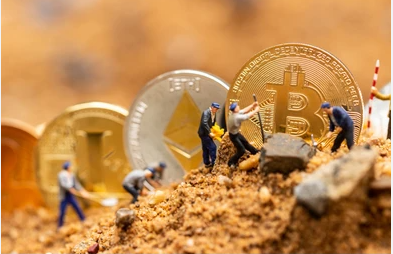Join Our Telegram Group
Casey Rodarmor, the creator of Ordinals, has raised concerns about the current state of Bitcoin mining decentralization, highlighting the prevalence of large mining pools that appear to function as proxies for AntPool. According to Rodarmor, this situation poses challenges to the core principles of decentralization within the Bitcoin network.
Challenges to Decentralization
In recent statements, Rodarmor expressed skepticism regarding the independence of many prominent mining pools, suggesting that they may simply serve as fronts for AntPool, a major player in the cryptocurrency mining space. This revelation calls into question the perceived decentralization of Bitcoin mining operations, as these pools exert significant influence over transaction selection policies.
The Role of AntPool
AntPool’s prominence in the Bitcoin mining ecosystem has sparked debates about the concentration of mining power and its implications for network security and decentralization. Rodarmor’s observations underscore the need for greater transparency and scrutiny within the mining sector to ensure the integrity and resilience of the Bitcoin network.
Exploring Stratum V2 Protocol
Rodarmor advocates for the adoption of Stratum V2, an upgraded version of Bitcoin’s pooled mining protocol that empowers miners to select the transactions included in each block. By giving miners greater control over transaction selection, Stratum V2 aims to enhance decentralization and mitigate the influence of centralized entities like AntPool.
Encouraging Experimentation
In light of the concerns raised about Bitcoin mining decentralization, Rodarmor encourages mining operators to allocate resources for experimenting with Stratum V2. By dedicating time and resources to exploring this protocol, miners can contribute to the ongoing evolution of Bitcoin’s mining infrastructure and promote a more decentralized network ecosystem.
Implications for the Crypto Community
Rodarmor’s critique of Bitcoin mining centralization and advocacy for Stratum V2 reflects broader discussions within the cryptocurrency community about the importance of decentralization and network resilience. As the cryptocurrency landscape continues to evolve, initiatives aimed at enhancing decentralization and promoting open participation in network operations remain crucial for ensuring the long-term viability and integrity of blockchain technologies.
Conclusion
The insights provided by Casey Rodarmor shed light on the complex dynamics underlying Bitcoin mining decentralization and highlight the need for continued innovation and collaboration within the cryptocurrency ecosystem. By exploring alternative protocols such as Stratum V2, stakeholders can work towards a more inclusive and decentralized future for Bitcoin and other blockchain networks.

